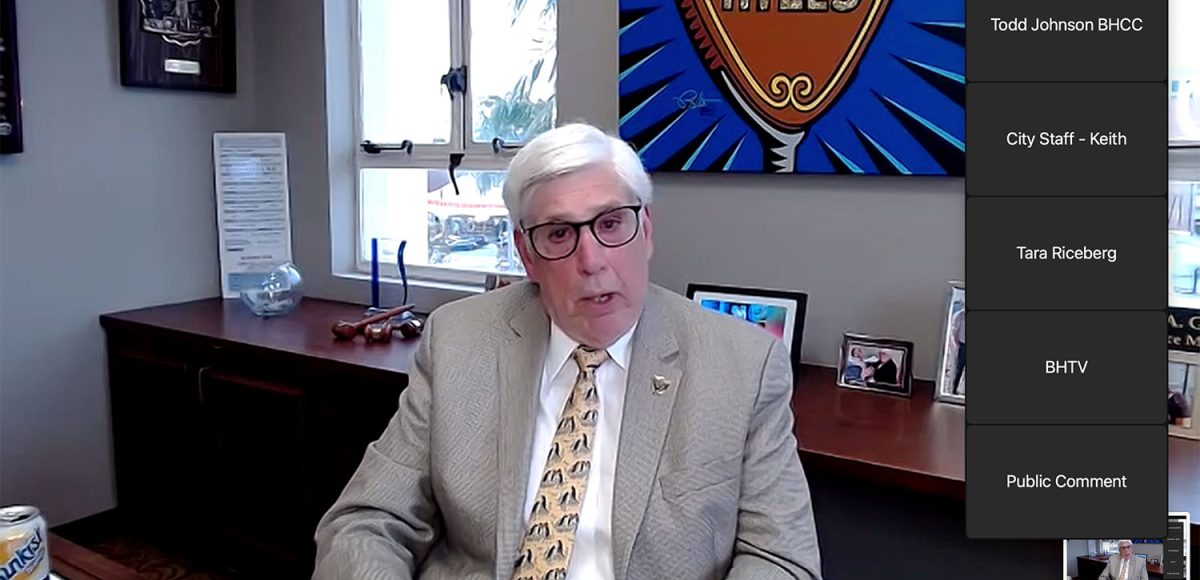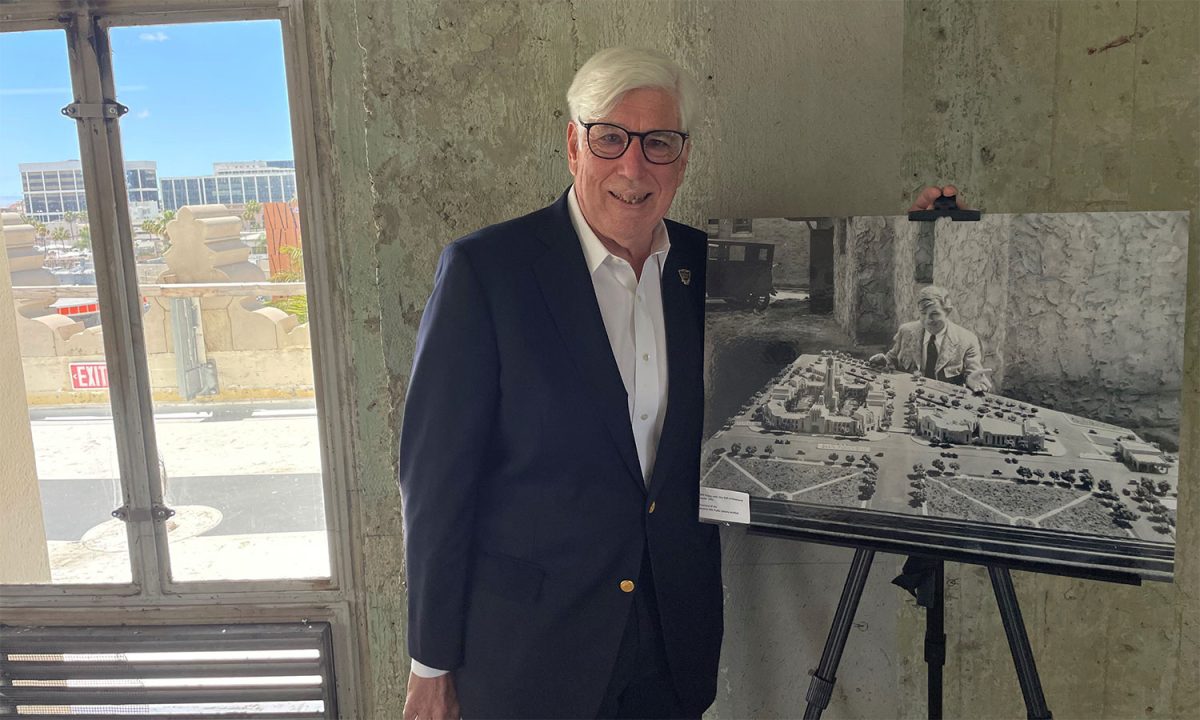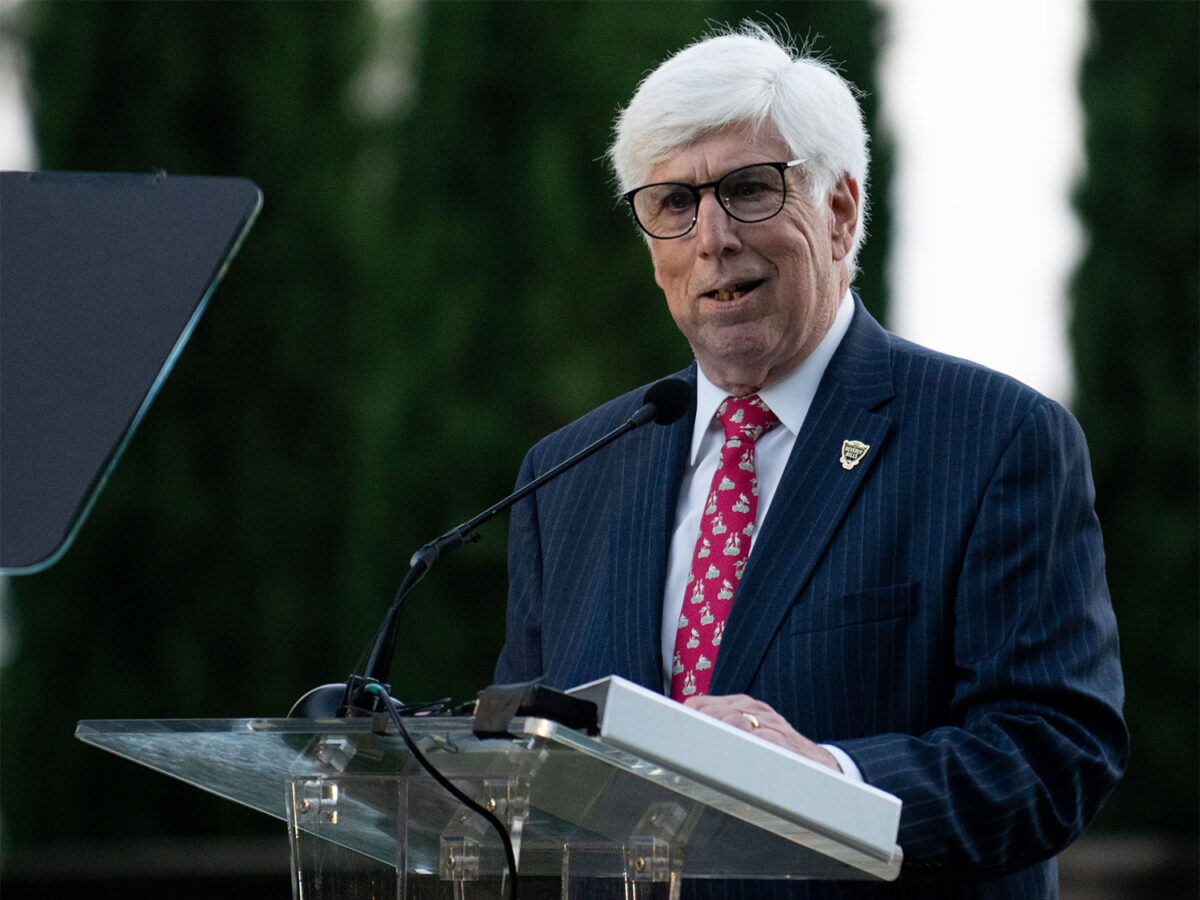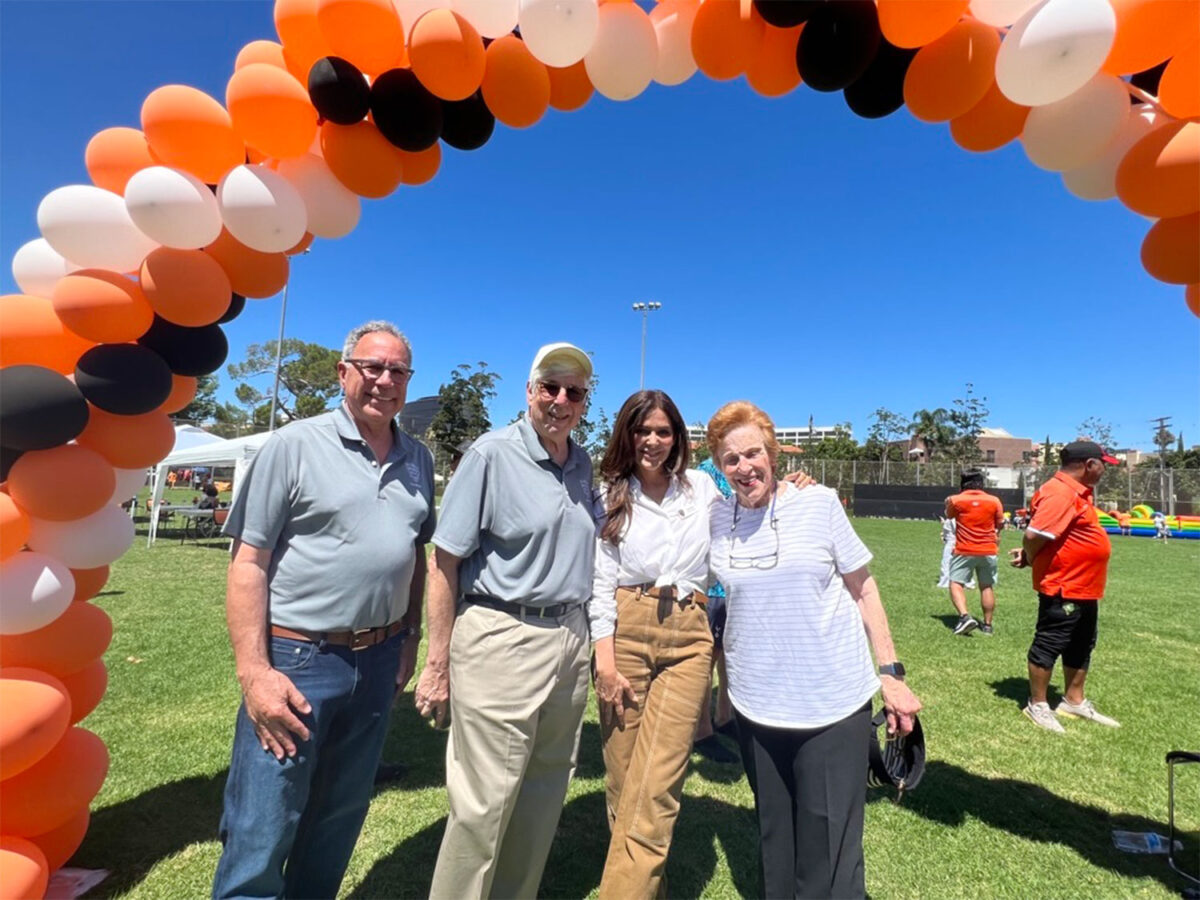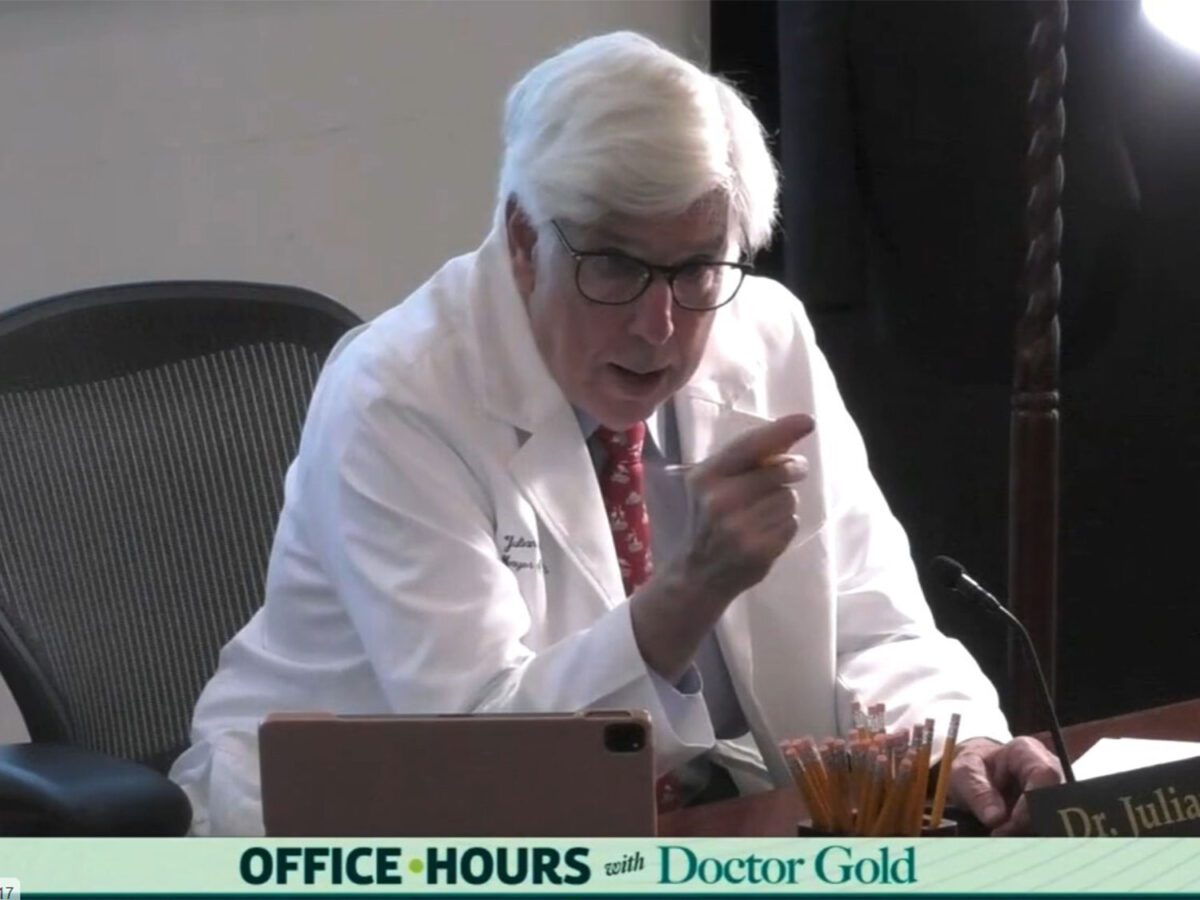The inaugural “Office Hours with Doctor Gold,” a monthly virtual event providing Beverly Hills residents with the opportunity to engage Mayor Dr. Julian Gold on city issues, drew approximately 30 participants.
During the online discussion, local business owner Tara Riceberg asked about the pro-Trump demonstrations held on Saturdays at Beverly Gardens Park. She’d like them moved to Sundays as they’re disrupting the busiest shopping day of the week. What can be done?
Beverly Hills resident Daniel Batista said he’s seen the tents on San Vicente Boulevard, just like everyone else has. “Is the city entering into any regional partnerships to address the situation?” he asked.
Dressed in a suit and tie and seated comfortably behind his desk, Gold, who was named mayor in April, listened closely to the questions, then provided thoughtful, detailed responses. He agreed with Riceberg that the weekly demonstrations likely disturb business owners on Canon Drive, but there wasn’t much the city could do because of free speech.
As for the encampments, Gold offered background on the situation on San Vicente. He recently had a meeting with Los Angeles Mayor Karen Bass and City Councilmember Katy Yaroslavsky, he said, where he told the Los Angeles leaders that if it’s a matter of securing funding for housing, the city of Beverly Hills was happy to partner with them.
Solving the homeless problem will require regional cooperation, Gold said.
“We’ve been accused of pushing them [the unhoused] in that direction, and that’s not true,” Gold said during the “Office Hours” Zoom. “This is a problem we’re not going to be able to avoid, nor should we.”
This was the first “Office Hours with Doctor Gold”—a “monthly check-up,” Gold said in a video promoting the program. Providing access to the recently appointed mayor, the event underscored an effort by Gold to connect directly with residents about what is and isn’t working for them in the city.
“We want an engaged population,” Gold told the Courier afterwards. “I thought it was worthwhile to try this.”
The recent one-hour meeting was held on May 9 from 7-8 p.m. During that time, Gold provided an update on news from city hall, then opened the meeting for attendees to ask questions and share what they liked—or don’t like—about Beverly Hills.
An attendee asked if the city was continuing a plan to create a metaverse of Rodeo Drive.
“It could happen,” Gold said, “but it’s progressing pretty slowly.”
Speaking about the policing of the two forthcoming Beverly Hills Metro stops at Wilshire/La Cienega and Wilshire/Rodeo, Gold said city leadership is currently having discussions about hiring additional officers that would be tasked with patrolling the stations.
Gold took the opportunity to discuss two issues that are of importance to his agenda: increasing the city’s water supply and expanding its public health programs.
The Nurse Practitioner Program allows the city’s most vulnerable residents to receive urgent medical care without having to be transported to a hospital. Gold said he’s pleased with the model of the city’s nurse practitioners and firefighter paramedics collaborating with primary care providers to optimize long-term health and wellness.
In fact, other cities were envious of the Beverly Hills Nurse Practitioner Program, Gold said.
Meanwhile, discussing the water situation, Gold explained the city provides for about 20% of its own water supply—the remainder is purchased wholesale from the Metropolitan Water District of Southern California—and is currently looking for additional wells to produce more water. That way, in the event of an earthquake or another catastrophic event affecting Los Angeles infrastructure, Beverly Hills could continue to supply its residents with water.
“This is really for us an insurance policy,” Gold the Courier. “The water from the state water project is all gravity-driven [meaning it’s susceptible to disruptions]. In a critical situation, we want to become as water independent as we can.”
The establishment of additional wells would reduce the city’s dependency on the Metropolitan Water District. On May 8, as part of an effort to increase the city’s water resiliency, Gold and City Council members cut the ribbon on a new water well on La Cienega Boulevard, between Guthrie Avenue and Sawyer Street. The city plans to build three more wells in the La Cienega area in the hope to produce as much as 25% of the city’s total water supply.
Gold explained there might be water under La Cienega Park, but it is something the city has yet to explore.
“Are there any other questions?” Gold said, as the sun set outside his Beverly Hills office windows and the electronic picture-frame on his shelf cycled through portraits.
The debut event in the ongoing series drew Chamber of Commerce CEO Todd Johnson, City Manager Nancy Hunt-Coffey, and Deputy City Manager Keith Sterling, among others.
Attendees tuned in on Zoom or called in to join the mayor in the special conversation.
For future sessions, Gold is hoping to shine a light on individuals and foundations in the community engaged in valuable work.
He credited “an army of IT folks” who helped make the program possible. Aside for them, he said, “It’s me, my computer and a ring light.”
For information on upcoming “Office Hours with Doctor Gold” events, visit Beverlyhills.org/officehours.



